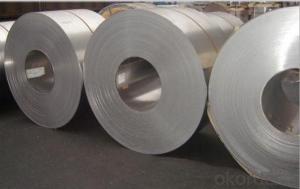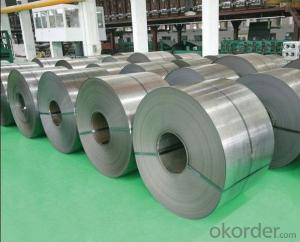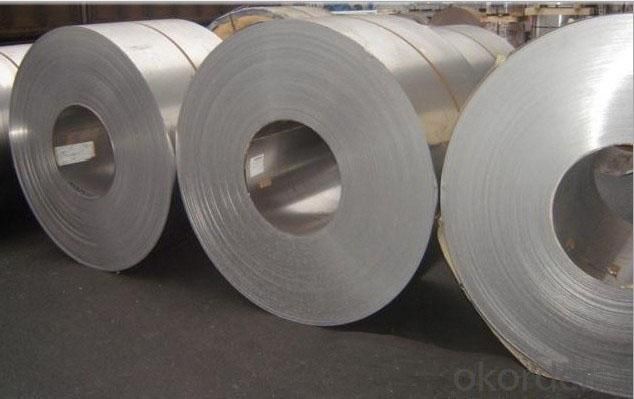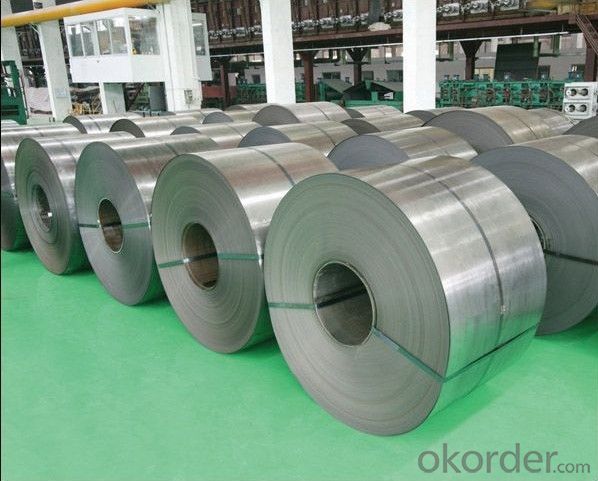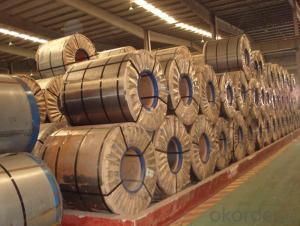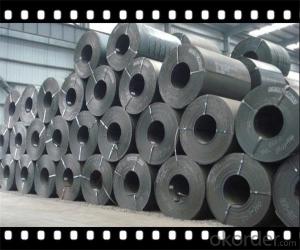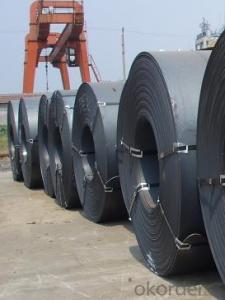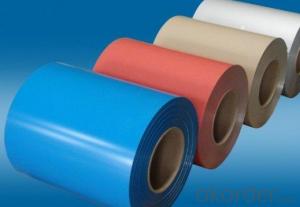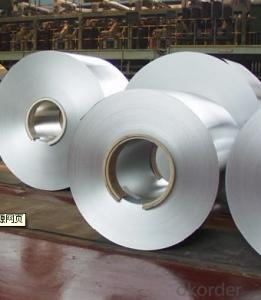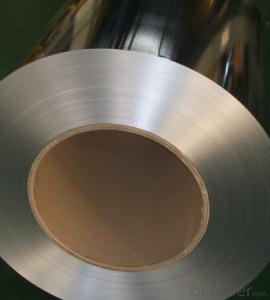Thickness: 0.15 - 2.0 mm
Technique: Hot Rolled
Application: Container Plate
Surface Treatment: Galvanized
Secondary Or Not: Non-secondary
Certification: CE
Special Pipe: Thick Wall Pipe
Alloy Or Not: Non-alloy
Section Shape: Other
Galvanized Steel Coil GI CNBM
- Loading Port:
- Guangzhou
- Payment Terms:
- TT OR LC
- Min Order Qty:
- 20 m.t.
- Supply Capability:
- 3000 m.t./month
OKorder Service Pledge
OKorder Financial Service
You Might Also Like
1.Quick Details:
Thickness 0.15mm--2.0mm Width 50--1250mm Zinc Coating 40gsm—275gsm Spangle Big, small regular spangle and zero spangle Surface Treatment Chromate, Galvanized, Skin Pass, Passivity and Oiled(un-oiled) ID 508mm or 610mm Coil Weight 3--7 Metric Tons and as requirements Production 12,000 metric tons per month More information of Galvanized Steel Coils/GI/PPGI/HDG Payment Term T/T or L/C (We usually charge 30% of the deposit first.) Delivery Port Qingdao Port or Tianjin Port Delivery Time Within 20 days after receipt of T/T or L/C MOQ 25 metric tons or one 20 feet container Application General use, Color coating, Corrugated Roofing making, Outside of the buildings Structure, Deep Drawing and etc. Ambition Reliable product, Competitive price, On-time delivery and High standard service.2.Packaging & Delivery
Packaging Details: standard package Delivery Detail: 1-4 week
cold rolled galvanizing steel coil
galvanized iron steel coil
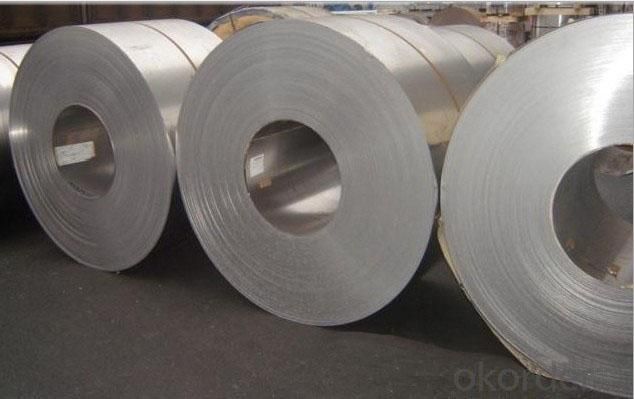
5.What is the application of Steel Coil?
There are two sides,one is out side: Workshop, agricultural warehouse, residential precast unit, corrugated roof, roller shutter door, rainwater drainage pipe, retailer booth;the other is inside: Door, doorcase, light steel roof structure, folding screen, elevator, stairway, vent gutter.
- Q: How are steel coils used in the manufacturing of automotive hoods?
- Steel coils are used in the manufacturing of automotive hoods as the primary raw material. These coils are processed and formed into the desired shape and size to create the hood. The steel's strength and durability make it an ideal choice for automotive hoods, providing protection and structural integrity to the vehicle.
- Q: What are the industries that consume the most steel?
- I'm guessing manufacturing
- Q: Help me compare the speed of sound in air, water, and steel please?Thanks.
- Sound Speed In Water
- Q: Can steel coils be coated with silicon?
- Yes, steel coils can be coated with silicon.
- Q: What are the factors to consider when selecting steel coils for a specific application?
- When selecting steel coils for a specific application, there are several factors that need to be considered. These factors include the type of application, the required strength and durability, the desired aesthetic appearance, the budget, and any specific industry standards or regulations that need to be met. Firstly, it is important to determine the type of application for which the steel coils will be used. Different applications may require different types of steel with varying properties. For example, if the coils will be used in structural construction, high-strength steel with excellent structural integrity may be required. On the other hand, if the coils will be used in automotive manufacturing, steel with good formability and weldability may be more suitable. The required strength and durability is another crucial factor to consider. This includes factors such as the load-bearing capacity, resistance to corrosion, and ability to withstand extreme temperatures or environmental conditions. The steel coils must be able to withstand the specific stresses and strains that will be placed upon them in the intended application. The desired aesthetic appearance is also important, especially in applications where the steel coils will be visible. Factors such as the surface finish, color, and texture of the steel coils may need to be considered. This is particularly relevant in industries such as architecture or interior design, where the visual appeal of the steel is a key consideration. Budgetary constraints should also be taken into account when selecting steel coils. Different grades and types of steel can vary significantly in price. It is important to find a balance between the desired properties and the available budget. Sometimes, it may be necessary to compromise on certain factors in order to meet budgetary constraints. Lastly, any specific industry standards or regulations should be considered when selecting steel coils. Certain industries, such as aerospace or automotive, may have strict requirements for the materials used in their products. In such cases, it is crucial to ensure that the selected steel coils meet all necessary standards and regulations. In conclusion, when selecting steel coils for a specific application, factors such as the type of application, required strength and durability, desired aesthetic appearance, budget, and industry standards or regulations should all be carefully considered. By taking these factors into account, one can make an informed decision and choose the most suitable steel coils for their specific application.
- Q: How are steel coils inspected for weldability using welding tests?
- Steel coils can be inspected for weldability using various welding tests. One common method is the bend test, where a sample of the coil is bent to evaluate the ductility and resistance to cracking. Another test is the tensile test, which measures the strength and elongation of the steel under tension. Additionally, the charpy impact test assesses the steel's toughness by measuring its ability to absorb energy during impact. These tests help determine the suitability of the steel coils for welding applications and ensure the quality of the welds.
- Q: What are the different steel coil specifications?
- There are several different steel coil specifications available, including dimensions, thickness, width, and weight. These specifications vary depending on the specific application and industry requirements. Additionally, steel coils can be classified based on their surface finish, such as hot-rolled, cold-rolled, or galvanized.
- Q: How are steel coils inspected for coil set using deflection measurement?
- Steel coils are commonly inspected for coil set, a condition where the coil exhibits a curvature along its length, by utilizing deflection measurement techniques. Deflection measurement involves applying a force on the coil and measuring the resulting deviation from its original shape. To inspect for coil set, the steel coil is placed on a testing apparatus that can apply controlled pressure to the coil. This apparatus typically consists of a set of rollers or hydraulic cylinders that can exert force on the coil's surface. The first step in the inspection process is to secure the coil in place, ensuring it is properly aligned and centered on the testing apparatus. Once the coil is in position, the apparatus applies a known force along the length of the coil. This force is typically applied in a consistent and controlled manner to ensure accurate measurements. As the force is applied, the deflection of the coil is measured using sensors or gauges positioned at specific points along the length of the coil. These sensors can detect even small deviations from the original shape of the coil. The deflection measurements are recorded and analyzed to determine the severity of coil set. Typically, a set of predetermined acceptance criteria is used to assess the coil's condition. If the recorded deflection measurements exceed these criteria, it indicates the presence of coil set. The severity of the coil set can be determined by comparing the actual deflection measurements with the acceptable range specified by the criteria. Deflection measurement is an effective method for inspecting steel coils for coil set as it provides quantitative data on the deviation from the original shape. This information allows manufacturers to identify and address any coil set issues, ensuring the quality of the steel coils before further processing or shipment to customers.
- Q: I'm wondering if steel casings are bad for a 1911. I know that an AK-47 will eat up steel casings all day long, but steel casings are bad for, and can be hard on an AR-15. I only have brass for my AR and that will never change. I'm curious as to how a 1911 fairs with steel casings. Is it bad for the gun or does it not matter? I'm asking because steel cased rounds seem to be the only readily available ammo these days. Thanks
- This better placed in the hunting section of sports. That is the area for gun questions. I've never used that Russian stuff in my guns. I would stick with brass or Aluminum Blaser ammo.
- Q: What are the common coil surface treatments available for steel coils?
- The common coil surface treatments available for steel coils include galvanizing, galvannealing, electro-galvanizing, and painting.
Send your message to us
Galvanized Steel Coil GI CNBM
- Loading Port:
- Guangzhou
- Payment Terms:
- TT OR LC
- Min Order Qty:
- 20 m.t.
- Supply Capability:
- 3000 m.t./month
OKorder Service Pledge
OKorder Financial Service
Similar products
Hot products
Hot Searches
Related keywords
